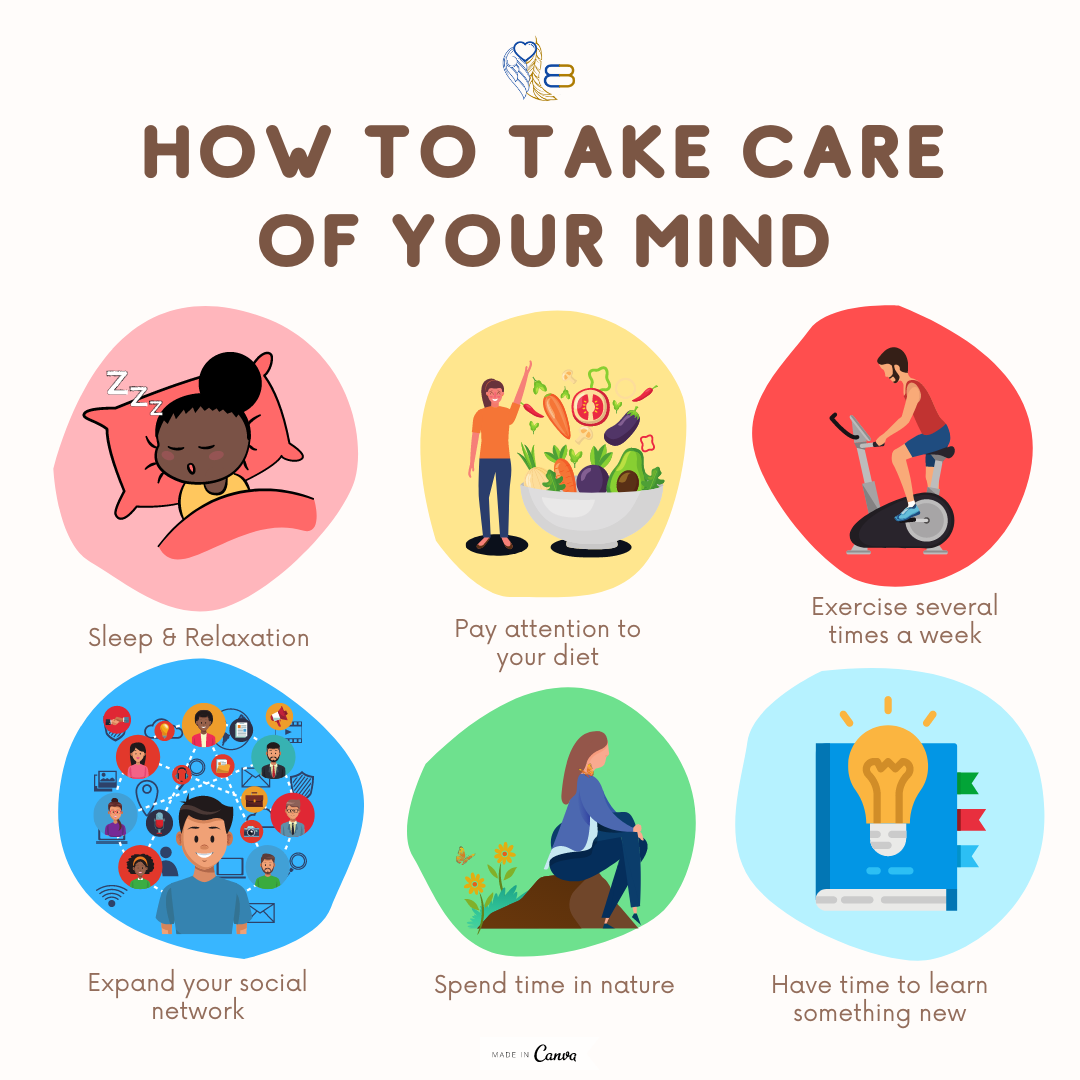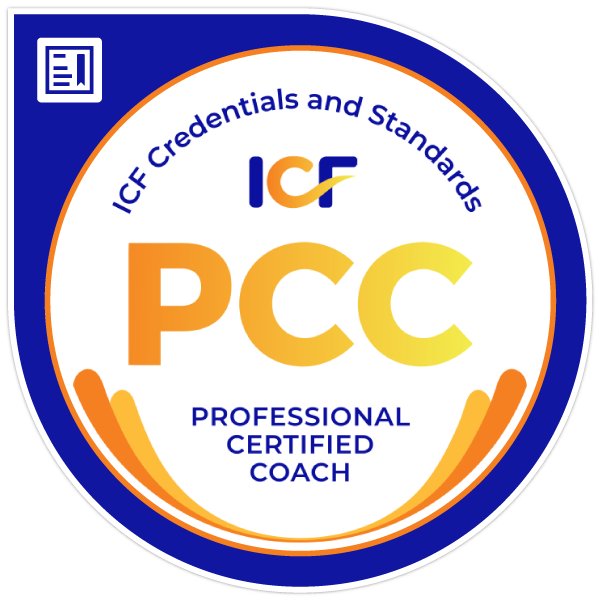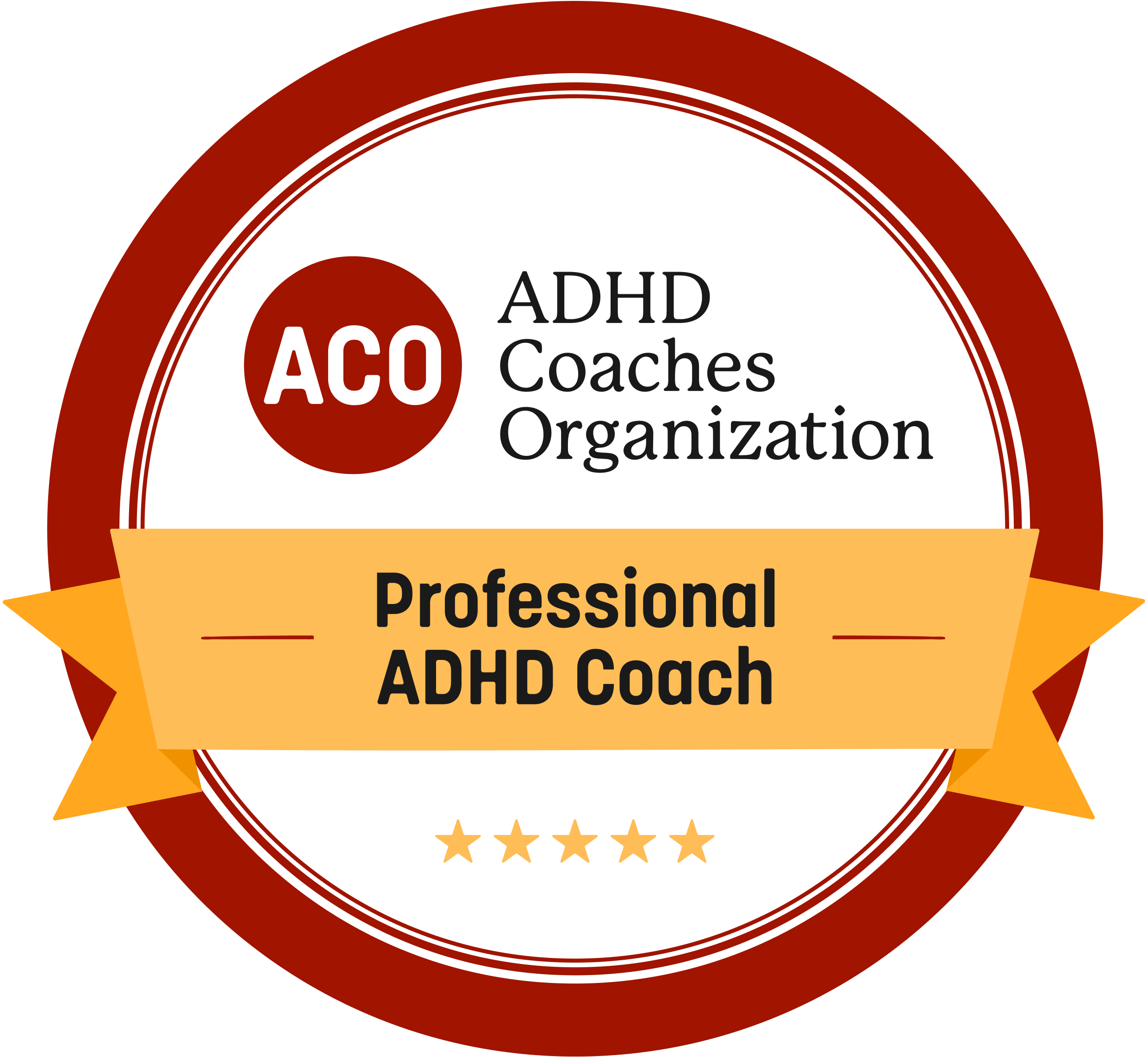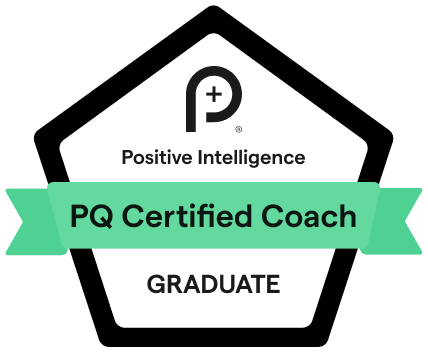
How to Take Care of Your Brain
By: Cindy North, CALC
Brain health is as important as heart health, needing exercise and care just the same. Agreeably one of the most important muscles in our body, the brain, requires attention, too. But brain health falls towards stigma and is not given nearly as much attention as it deserves. A stigma surrounds the topic of the brain and a person’s ability. Mental health comes with a negative glare. Others quickly judge your brain’s ability, and likely you think too of yourself by what you know, can recall, and perform. The good-enough factor is born here and comes to life. Without the brain, the functions we take for granted like breathing, swallowing, or moving our body would cease. This is also where memory, planning, and attention are housed. If you owned a 2021 Bently, would you take care of it like it’s a stripped-down 1970’s hatchback, or would you drive it with thrill and wax it to a mirroring shine? People who have Attention Deficit Hyperactivity Disorder (ADHD), weaknesses in their executive functioning skills, or middle-aged memory loss can significantly benefit from making an active choice to care for their brain health. This article will provide you with ways to support your brain’s needs to function at its optimum potential.
There is a battery of tests to measure knowledge and executive functioning at any given moment. These are snapshots of the brains’ potential at that moment, but this may not be an accurate assessment of a person’s full potential. School-age children are routinely tested for what they know. Your ability to perform a particular task is not stagnant. What would you expect of yourself if you lifted weights for several weeks? Most likely, you would expect to be stronger. If not, how likely would you be to continue lifting weights? Payoff is important. What keeps you motivated if you do not reap the benefit? What can you do to take care of your most important organ? Listed below are six areas that support brain health. How can you implement these key areas to boost your brain so you do not feel your brain has let you down? How can you not fall prey to the “I’m not good enough” factor?
You can move away from cursing yourself and growing self-doubt by inserting self-care in any or all the following areas by feeding your brain with what is needed to stay sharp and strong. Rate yourself 1-5 (1 being lowest and 5 highest) in these six key areas to become more self-aware of your brain health. Then pick your lowest area and dive into trying a few of the tips and tricks listed to enhance your brain health.
- Sleep and Relaxation– Sleep is often disregarded. In history, society has encouraged our greatest minds to operate on little sleep. The top five sleep-deprived professions in America are Protective Service Members (39.2%), Food Prep and Serving (39.8%), Health Care Practitioners and Technicians (40%), Health Care Support (40.1%), and Print Production (42.9%) getting less than 7 hours of sleep a day. (Moore, 2020) In a study, A recent study published in the January 2021 issue of the journal Sleep showed that ample sleep restores clarity and performance by actively refining cortical plasticity. Sleep cannot be replaced by periods of rest. (Nissen et al., 2021) People suffering from sleep disturbances may not be performing at their peak brain potential. With the importance of sleep, try these tips for getting a good night’s rest.
- Create a sleep ritual. Build-in habits that will cue your brain that sleep is coming. What do you in the 30-45minutes before you get into bed? Ex: shower, brush your teeth, turn down the lights,
- Turn off blue-light devices. Blue light is proven to disrupt the brain’s signals of daylight. Don’t forget about your alarm clock; they too can emit blue light.
- Sip calming tea
- Apply essential oils such as Lavender or a Night Pillow Spray.
- Find comfort- find what you sleep best in, and find a comfortable pillow and bed.
- Use white noise to block out background noises that may keep you stimulated.
- Read a calming book. (Be mindful of what you read. Sometimes it can be too stimulating)
- Pay Attention to What You Eat. Nutritional Intake feeds our entire body, especially our brain. The top five brain-boosting food sources are
- fatty fish; salmon
- coffee
- blueberries
- turmeric
- broccoli
Jennings states in her article 11 Best Foods to Boost Your Brain and Memory, “Fatty fish is a rich source of omega-3s, a major building block of the brain. Omega-3s play a role in sharpening memory and improving mood, as well as protecting your brain against decline. Coffee can help boost alertness and mood. It may also offer some protection against Alzheimer’s, thanks to its caffeine and antioxidants. Blueberries are packed with antioxidants that may delay brain aging and improve memory. Turmeric and its active compound curcumin have strong anti-inflammatory and antioxidant benefits, which help the brain. In research, it has reduced symptoms of depression and Alzheimer’s disease. Broccoli contains a number of compounds that have powerful antioxidant and anti-inflammatory effects, including vitamin K.”, read more brain-healthy foods. (Jennings, 2017)
- Exercise Several Times a Week Exercise promotes cardiovascular health, improves blood flow to the brain, decreases inflammation, and lowers stress hormone levels in the body. Dr. Bonner-Jackson suggests building in 150 minutes of moderate-intensity aerobic activity (walking, jogging, biking, swimming) a week. Thirty minutes five days a week of aerobic exercise. If you do not, even a short amount of time will help your brain function clearer. Aerobic exercise is value-added to your brain. (Why Exercise Protects Your Brain’s Health (and What Kind Is Best), 2019) Studies have shown that as little as 10 minutes can give you a brain boost. While most of us focus on exercise as a way to trim our waistlines, the better news is that routine physical activity firms up the brain — making it a simple, alternative ADHDtreatment. A new study lead by Prof. Matthew Heath, a supervisor in the Graduate Program in Neuroscience at Western University in Ontario, Canada, demonstrates that just 10 minutes of activity can give the brain a brief upgrade, improving performance in a mental task. (Newman, 2017)
- Expand Your Social Network Stay socially engaged. Interaction is known to stimulate a feel-good factor when you surround yourself with like people. Robinson states in How Social Connections Improve Your Brain Health, “Remind yourself how your resources provide an opportunity to learn more about your strengths and positive qualities and put them into practice.” (Robinson, 2020) Connecting yourself with people helps keep you grounded, often with a feeling of purpose and commitment. Join a trusted social media group where you feel safe to connect and share. Volunteer in your community. Join a church group.
- Spend Time in Nature Getting out in nature provides your brain with the opportunity to use its’ full spectrum of senses. Fresh air can be scented by flowers or dewy grass, igniting your sense of smell. The landscape allows your eyes to use both focused vision and its’ peripheral vision to scan your surroundings using your sense of sight. Your body senses terrain under your feet and assesses for safety using your proprioception and sense of touch. Your ears take in sounds of birds chirping or a stick snapping under your feet using your sense of hearing. One limiting sense is the sense of taste, but you can stimulate this sense by bringing along a snack with items that grow in nature, like a berry trail mix and water. One study found that a 90 minutes nature walk made a noticeable difference in rumination. The participants reported less rumination on negative thoughts, and their brain scans showed less activity in the subgenus prefrontal cortex — an area of the brain that’s been linked to mental illness risk. (Bratman et al., 2015) Nature gives a fresh lens to circumstances and can offer the opportunity to shift your thinking.
- Make Time to Learn Something New Trying something new stimulates your brain. Learning new tasks and hobbies ignites neurons you haven’t been using. The brain is constantly wiring and trimming synapses. Think of yourself as a gardener. The rose bush is like your brain. Old wood, broken branches, and roses are harvested in bloom. There are certain times of the year you trim the rosebush back for it to regrow more robust and healthier. The brain has a similar process. The brain is like a sponge with an excellent capacity for learning. Synaptic pruning occurs in three phases; birth to age 2, 11-15 years of age, and again in early adulthood between 18-25 years of age. (de Silva, 2018) The term “use it or lose it” was coined from brain pruning. This explains why some memories may be lost. Wong states, “On a physiological level, learning new things is good for your brain. According to CCSU Business & Development, practicing a new skillincreases the density of your myelin or the white matter in your brain that helps improve performance on a number of tasks. Additionally, learning new skills stimulates neurons in the brain, which forms more neural pathways and allows electrical impulses to travel faster across them. The combination of these two things helps you learn better. It can even help you stave off dementia. (Wong, 2017) Learning a new skill activates your brain chemistry, learning speed becomes faster, you connect skills in different areas, you become a more well-rounded and interesting person, it staves off boredom, helps you adapt to change, and may stave off dementia. (The Top 7 Benefits of Learning a New Skill, 2017) You can learn new things at any age despite the saying, “you can’t train an old dog new tricks.” Determine something of interest and explore more ways to learn about it. Read a book, watch a video, attend a class, practice. Many colleges and online courses are provided free of charge.
(6 Pillars of Brain Health, n.d.)
In conclusion, brain health is likely the most crucial area requiring attention for all individuals, yet sometimes ignored and shamed. Moreso, attention to brain self-care is vital for people who have neuro-deficits, ADHD, executive functioning deficits, or any other brain challenge. Understanding how your brain 
Moore, C. (2020, July 13). 5 most sleep-deprived professions: Study. FOXBusiness. https://www.foxbusiness.com/lifestyle/most-sleep-deprived-professions-slumber-yard
Nissen, C., Piosczyk, H., Holz, J., Maier, J. G., Frase, L., Sterr, A., Riemann, D., & Feige, B. (2021). Sleep is more than rest for plasticity in the human cortex. Sleep, 44(zsaa216). https://doi.org/10.1093/sleep/zsaa216
Jennings, K.-A. (2017). 11 Best Foods to Boost Your Brain and Memory. Healthline. https://www.healthline.com/nutrition/11-brain-foods
Why Exercise Protects Your Brain’s Health (and What Kind Is Best). (2019, September 17). Health Essentials from Cleveland Clinic. https://health.clevelandclinic.org/why-exercise-protects-your-brains-health-and-what-kind-is-best/
Exercise and the ADHD Brain: The Neuroscience of Movement. (2008, January 7). ADDitude. https://www.additudemag.com/exercise-and-the-adhd-brain/
Newman, T. (2017, December 22). 10 minutes of exercise enough to boost brain. Medicalnewstoday.com; Medical News Today. https://www.medicalnewstoday.com/articles/320486
Robinson, B. E. (2020, October 26). How Social Connections Improve Your Brain Health | Psychology Today. Www.psychologytoday.com. https://www.psychologytoday.com/us/blog/the-right-mindset/202010/how-social-connections-improve-your-brain-health
Bratman, G. N., Hamilton, J. P., Hahn, K. S., Daily, G. C., & Gross, J. J. (2015). Nature experience reduces rumination and subgenual prefrontal cortex activation. Proceedings of the National Academy of Sciences, 112(28), 8567–8572. https://doi.org/10.1073/pnas.1510459112
de Silva, P. N. (2018). Do patterns of synaptic pruning underlie psychoses, autism and ADHD? BJPsych Advances, 24(3), 212–217. https://doi.org/10.1192/bja.2017.27
Wong, B. (2017, December 29). How Learning a New Skill Helps Your Mind Grow Stronger. Inc.com. https://www.inc.com/brian-wong/how-learning-a-new-skill-helps-your-mind-grow-stronger.html#:~:text=Learning%20anything%20new.%20On%20a%20physiological%20level%2C%20learning
The Top 7 Benefits of Learning a New Skill. (2017, January 23). CCSU Continuing Education; CCSU Continuing Education. https://ccsuconed.wordpress.com/2017/01/23/the-top-7-benefits-of-learning-a-new-skill/

Cindy North is a Certified ADHD Life Coach with specific training in ADHD neurobiology through the iACTcenter and is moving towards continued coach certification with the International Coach Federation. Her passion is guiding the ADHD community to success by empowering others to shine with their abilities.







